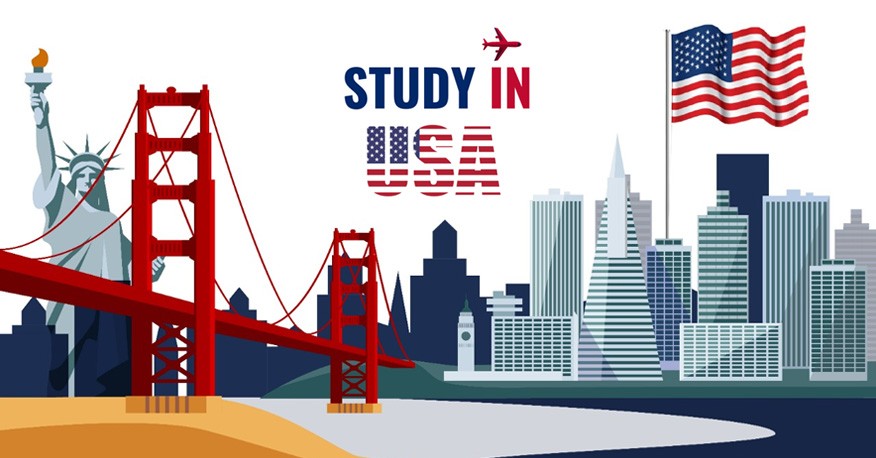How To Get Preparations For Higher Studies In Canada.
Why study in Canada
Canada is one of the best places to study in the world! It offers excellent opportunities to pursue your academic goals, explore new cultures, and enjoy a high quality of life. As a student in Canada, you will focus both on research and innovation, and hands-on experience. Some of the top universities in Canada include the University of Toronto, McGill University, and the University of British Columbia. You will find an open-minded, multicultural society where hundreds of thousands of students from all over the Globe come to study.
Here are the top reasons why Canada is the best place for you to study:
1. Canadian universities are listed in reputable worldwide rankings, and 11 are among the world’s top 250. Canada’s top-ranked universities are known for their high-quality teaching, research, and academic excellence.
2. Many international students choose Canada to study because the country’s higher education system provides excellent academic programmes with a strong focus on hands-on learning, practical experience, and research opportunities.
3. The country has some of the lowest tuition costs among English-speaking nations. Sure, it will cost you more to study in one of the big student hubs, but you will find highly affordable programs in some other regions.
4. Canadian universities excel in various academic disciplines, including technology and engineering, natural sciences, business and economics, social sciences, and humanities.
5. Canada has a significant tradition in fields such as engineering, computer science, natural sciences, and healthcare. But what sets its universities apart from the ones in other countries is their focus on interdisciplinary studies and unique programs, such as Indigenous studies, environmental science, and more. Canadian universities are particularly renowned for their research excellence in these fields, as well as in areas such as environmental science, sustainability, and renewable energy.
6. Canada is a diverse and welcoming country with a multicultural society celebrating diverse cultures, traditions, and languages. This creates a dynamic and inclusive learning environment for international students.
7. If you want to enjoy city life and nightlife, then Toronto, Vancouver, and Montreal should be top on your list. These are the country’s biggest student hubs and have a vibrant cultural scene, with plenty of museums, galleries, theatres, and music venues to spend time at. There are also countless restaurants, cafes, bars, pubs, and nightclubs.
How to choose a university in Canada?
Canada is home to some of the world's top universities, offering students a world-class education and a diverse range of academic programs. Each province and territory in Canada approve which universities can enroll international students. These universities are called Designated Learning Institutions (DLI).
When wondering how to choose a university in Canada that is best for you, know there are over 200 public and private universities and just as many public colleges and institutes. It is worth knowing that universities and colleges are not precisely the same thing in Canada. Differences between them faded a lot in the past decades. For example, colleges traditionally offer Bachelor's degrees in applied disciplines. Next to polytechnics and institutes, colleges usually focus on shorter, more practical, technical, or occupational programs.
The most popular student hubs in Canada, Toronto, Montreal, and Vancouver, are also three of the world’s most desirable cities to be a student in. They rank among the top 20 QS Best Student Cities.
Choosing a university checklist
So how do you choose a university in Canada out of the hundreds of available options? Here are some steps to take:
1. Check if your country has an agreement with Canada. Such an agreement can make things easier for you, either in terms of how to apply to university, visa requirements and tuition fees. This may apply if you come from the US, UK, other Commonwealth countries etc.
2. Check out university rankings. Do this considering that you will find high-quality universities lower than the top 100.
3. Have a look over the map. Canada is a huge country. Are large distances inconvenient for you? Is it easy to travel to and from the places of your choice?
4. Match your strengths to university admission criteria. Review the application requirements of multiple universities and think about where you might have an extra edge.
5. Estimate your expenses. Some Canadian cities are more expensive than others. Same with universities when it comes to tuition fees. How much is too much for you?
6. Career perspectives. Is the program or university well connected to the industry? How will a graduate there help later when choosing a career path?
7. City and campus size. Do you enjoy big city life or quieter, smaller communities? How about commuting? Is the campus easily accessible or not?
Tuition Fees in Canada
Canadian university tuition fees vary depending on several factors. Some provinces are more expensive than others, and fees may also depend on the type of program or the university you choose. Tuition fees in Canada for international students are higher than the ones domestic students pay. Also, undergraduate (Bachelor’s) program can be two or three times more expensive than graduate (Master’s, PhD) programs.
Specifically, if you are an international student looking to study for a Bachelor’s in Canada, you will pay 36,000 CAD, on average, each year. Among the most expensive are veterinary medicine, dentistry, and medicine undergraduate degrees (up to 68,000 CAD).
Postgraduate students interested in Canadian Master’s programs will face 21,000 CAN yearly fees, on average. Tuition fees for MBA (Master in Business Administration) programs are among the highest (up to 76,000 CAD),
You will find the cheapest tuition fees for international students in Newfoundland and Labrador regions, where undergrad programs cost around 16,000 CAN on average, while postgraduate programs 5,000 CAD.
While international students in Canada are not eligible for tuition fee waivers, some universities may offer you small deductions or rebates based on proof of financial need or academic merit.
Make a budget and find out how to pay for your studies
Studying in Canada is an affordable option. School fees for college and university are generally lower than fees in Australia, the United Kingdom and the United States (QS Top Universities).
You can use our search tool to search and compare tuition and living costs for different college and university programs across Canada. Depending on where you choose to study, your costs will be different. To help prepare your budget, use the search tool to get cost estimates for:
- Food
- Housing
- Transportation
- Health insurance
There are different ways to help finance your studies, such as:
- scholarships, fellowships and grants
- work during your studies
- support from parents and/or family
Apply to university in Canada
How to apply to university
If you are wondering how to apply for a university in Canada, you should know that each has its own admission rules. Some may be similar, and some may be different from others. Make sure you understand and meet these requirements before applying.
Canadian universities require English language proficiency tests such as TOEFL, IELTS, or PTE Academic, but some may also require French proficiency.
You must pay a fee to apply for university in Canada. The cost varies among universities and programs, but most universities charge an application fee ranging from $50 to $150 CAD. Some universities also require a non-refundable deposit once you have been accepted into the program. It may also be useful to know that the Canadian higher education system has a lot in common with the ones in the USA and UK.
What’s the structure of the Canadian academic year
Most Canadian universities and colleges follow a two-semester system, where classes occur from September to May, but exact dates can differ between regions or institutions.
- 1st Semester - September to December
- Winter Break - December to January
- 2nd Semester - January to May
- Summer Break - June to August
When to apply for Canadian universities
The deadlines to apply for university in Canada vary, but you should prepare eight to twelve months earlier. International students usually start school in September or January, but some universities also organize spring and summer admissions. So, deciding when to apply to Canadian universities depends on when classes start at your school.
For the fall semester, which begins in September, the deadline to apply for university is often set months earlier, in January or February of the same year. For programs that start in January, deadlines are usually in November or December of the previous year.
Check your university’s deadlines first, and if you apply to several, check each. If you're an international student, prepare in advance and give yourself enough time to gather the documents and complete the application process
Student visas for Canada
If you’re from Bangladesh, you’ll need to apply for a visa to study in Canada. The following information is taken from embassy and consulate websites. The student visa that you need to enroll in a complete degree program in Canada is displayed below.

